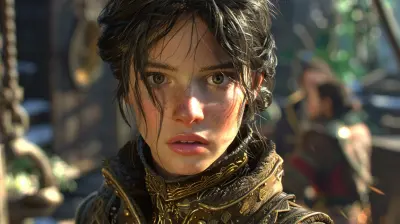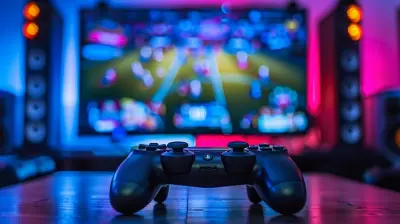Real-World Skills Through VR: What Players Might Be Learning
1 July 2025
Imagine stepping into a virtual world, slinging spells, solving puzzles, or commanding an entire fleet — all while unknowingly sharpening your real-world skills. Sounds like something out of “The Matrix,” right? But the truth is, virtual reality (VR) gaming isn’t just about flashy visuals and immersive experiences. It’s also quietly becoming a powerful tool for real-world learning!
So, grab your headset and let’s dig into how gaming in VR might be leveling up more than just your avatar.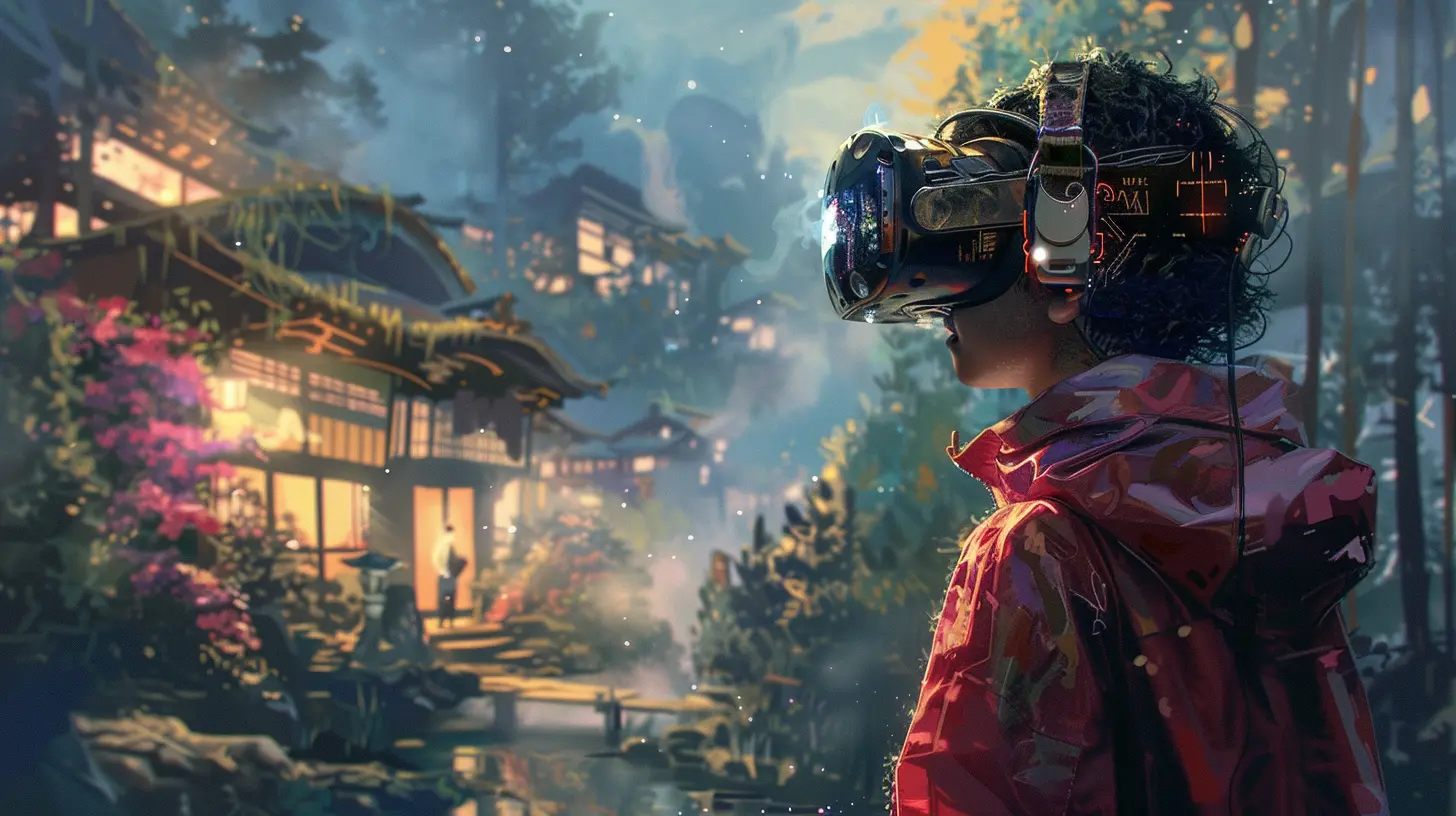
The Game-Changer: Virtual Reality in a Nutshell
First, a quick refresher! VR is basically a simulated environment where players can interact with 3D worlds using a headset, motion controllers, and sometimes even full-body tracking. It feels like stepping into another reality — hence the name. The tech is mostly used for games, but it’s also creeping into fitness, education, therapy, and job training.And here’s the cool part: while you're slicing fruit like a ninja or escaping zombie hordes, you’re actually learning. Wild, right?
Spatial Awareness: Becoming the Master of Your Domain (and Room)
Ever play a VR game like Beat Saber or Superhot? You're constantly dodging, lunging, ducking, and reaching. All that movement isn't just for show. It’s training your brain to understand space in 3D better than ever.Why it matters:
Improved spatial awareness can help in real life — whether it’s navigating city streets, parallel parking like a pro, or even rearranging your furniture without bumping into everything.
Real-world win:
Studies suggest VR gamers often react faster and have sharper spatial memory. Basically, you're becoming your own GPS with a side of ninja reflexes.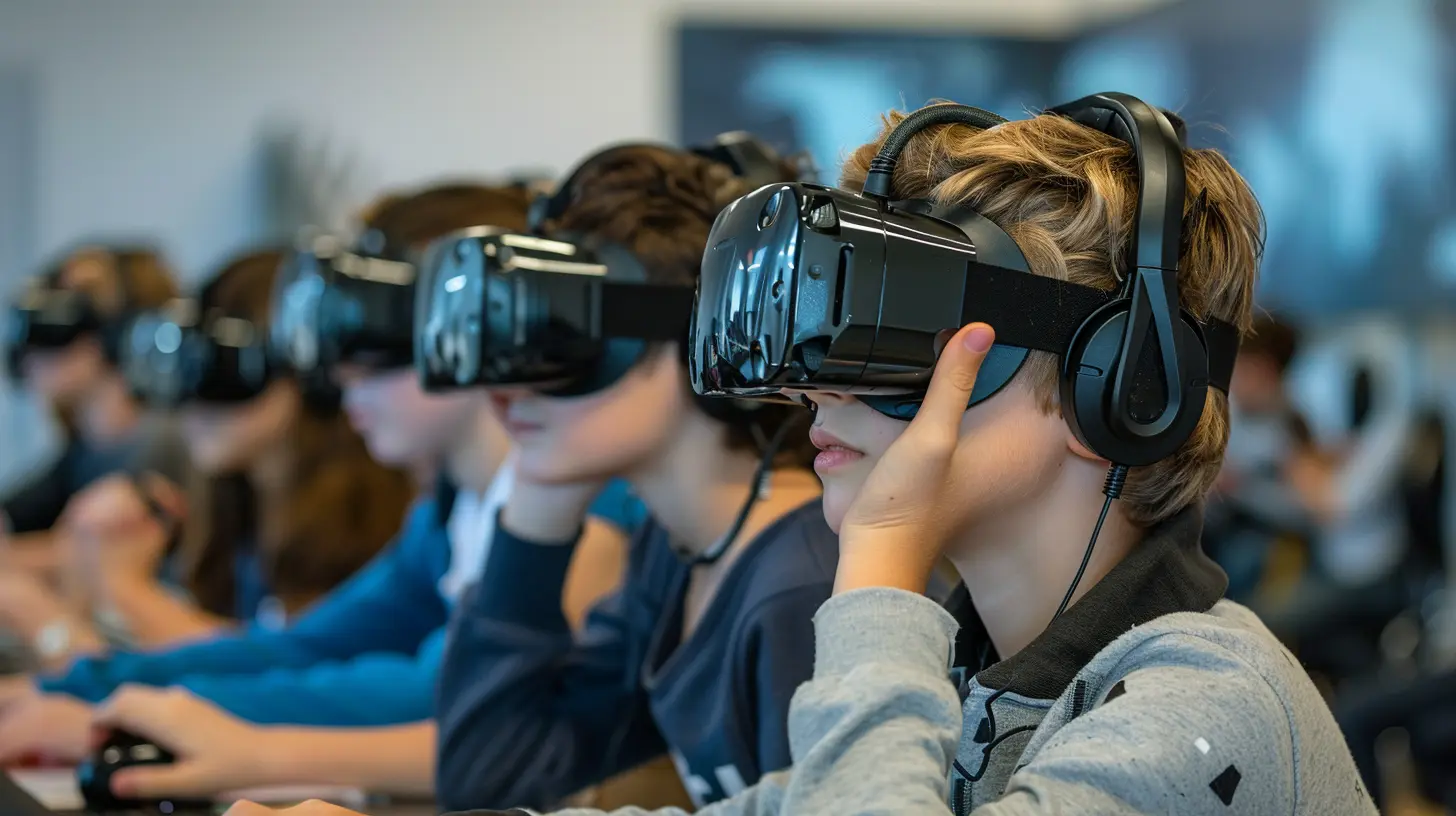
Hand-Eye Coordination: Like Catching Flies with Chopsticks
Juggling flaming swords, solving puzzles with motion controls, or scoring in VR table tennis? These all demand serious coordination.Your hands and eyes are learning to work in perfect sync — and that’s not just good for gaming. Think of tasks like driving, cooking, or even typing faster with fewer typos (finally!).
Pro tip:
The more you play, the better you get at rapid response. It’s like teaching your body to move instinctively — minus the wax-on, wax-off routine.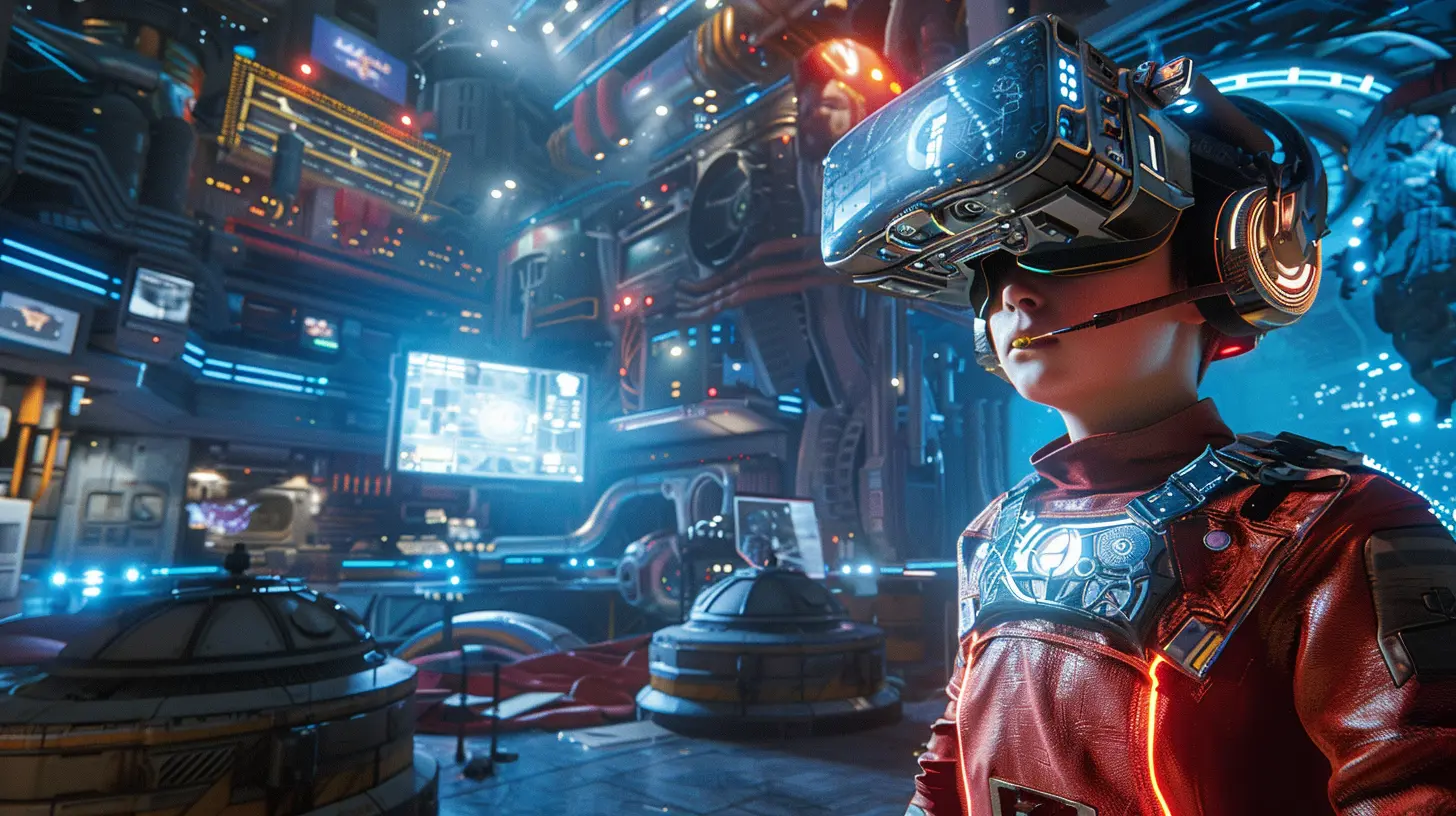
Problem-Solving: Virtual Brainsquashing for the Win
Ever get stuck in a VR escape room and spend an hour figuring out how to open a single door? Yeah, frustrating but strangely fun. And, guess what? You're strengthening your brain’s problem-solving muscles with every confusing puzzle.VR challenges often mimic real-world logic puzzles — only with a lot more lasers and secret codes.
Cognitive bonus:
You're practicing analysis, lateral thinking, and trial-and-error strategies — all skills that apply to jobs, school, and even daily life when that IKEA furniture isn’t cooperating.
Communication & Teamwork: Yelling Isn’t Always Bad
Multiplayer VR games like Rec Room, Phasmophobia, or VRChat rely heavily on communication. Whether you're coordinating with teammates or yelling “RUN!” at your squad, you're building real interpersonal skills.Why it’s awesome:
These games force you to express ideas clearly, listen, and adapt to group dynamics — the same stuff you'd do in a work meeting or group project (but with fewer ghosts).
Even better:
Some VR communities are super welcoming for people who are a bit shy IRL. It’s a great low-stakes training ground for chatting, cooperating, and even leading.
Physical Fitness: Who Needs a Gym When You’ve Got a Lightsaber?
Here’s a secret—VR gaming can be sneaky cardio.Games like Beat Saber, Thrill of the Fight, and Pistol Whip can burn hundreds of calories an hour. You’re squatting, punching, dodging, and dancing — often without realizing how much you're moving.
Fitness perks:
Increased stamina, better balance, and maybe even some arm muscles you didn't have before. Plus, it’s way more fun than a treadmill.
Quick tip:
Add a fitness tracker during play and watch those active minutes rack up. Who said gamers can’t be athletic?
Creativity & Design: Your Inner Artist Just Got a 3D Canvas
VR isn’t just about swinging swords. It’s also a massive playground for creativity.Apps like Tilt Brush and Kingspray Graffiti let you draw, paint, and sculpt in 3D space. And building in games like Half-Life: Alyx Workshop or VRChat worlds is a full-on design project.
Why it matters:
You’re learning layout, color theory, storytelling, and real-world design logic — all in a super engaging environment.
Fun fact:
Some players have even turned their VR art into NFTs or freelance gigs. So yes, your wild digital doodles might just pay the bills someday.
Empathy & Perspective-Shifting: Walking a Mile in Someone Else’s VR Shoes
VR has a unique superpower — it can literally put you in someone else’s shoes. Games and experiences built around storytelling can stir some serious emotions.Titles like Notes on Blindness or Clouds Over Sidra simulate real-life challenges, giving you a front-row seat to someone else's world.
Big takeaway:
These experiences promote empathy, cultural understanding, and emotional intelligence — things every human could use a little more of.
In short?
VR can be a window into lives and perspectives you’d never encounter otherwise. Not bad for a headset.
Time Management & Focus: Beating the Clock (and the Boss)
Think about it — if you’ve ever juggled respawn timers, quest deadlines, or escaped a ticking time bomb, you’ve probably gotten better at managing your time.Some VR games demand laser focus and split-second decision-making. They train your brain to prioritize tasks, plan moves, and stay calm under pressure.
Life application:
Whether it’s studying for exams, balancing work tasks, or just managing your Monday madness — these are top-tier adulting skills.
Technical Literacy: Becoming the Resident IT Wizard
Let’s not forget — setting up VR gear isn’t exactly plug-and-play. Between sensors, drivers, updates, and cable spaghetti, you're practically earning a minor in troubleshooting.Bonus round:
Modding games, tweaking settings, building custom maps — it all boosts your understanding of software and hardware.
Get this:
Some players discover a love for coding or design by tinkering with VR tools. You might be just one headset away from your dream tech job.
Emotional Resilience: Losing with Style (and Maybe a Little Screaming)
VR games can be tough. Like, rage-quit tough. But sticking with it and pushing past failure teaches grit — and let's be real, that’s a skill every human needs.Whether you're falling off climbing walls in The Climb or getting jump-scared over and over in Five Nights at Freddy's, you’re learning how to face your fears (and your frustration) head-on.
Why it’s gold:
Resilience, patience, and emotional control are crucial life tools. And you’re building them without even realizing it.
The Classroom, Gym, Office & Studio — All Rolled Into One
What makes VR so special is its all-in-one potential. One moment it’s a workout, the next it’s a strategy session, and then — poof — you’re in art class. It blends entertainment and education in a way that feels effortless.VR gaming shows us that learning doesn’t have to be boring, and skills don’t have to come from textbooks. You're picking up real-world superpowers while having a blast. That’s a win-win in any reality.
So... What’s the Catch?
Well, like anything tech-related, balance is key. Moderation matters — and not every VR game is built for education. But choose wisely and you’ll unlock more than just achievements.So next time someone says gaming is a waste of time, just smile and tell them you’re sharpening your spatial memory, improving hand-eye coordination, and practicing leadership skills. Oh, and saving the galaxy while you're at it.
Multitasking? You've basically mastered it.
TL;DR Time — Real-World Skills You Might Be Learning Through VR
Here’s a quick rundown of real-world skills VR might be quietly sneaking into your brain:- 🧭 Spatial awareness
- 🖐️ Hand-eye coordination
- 🧠 Problem-solving
- 🗣️ Communication & teamwork
- 🏃♂️ Physical fitness
- 🎨 Creativity & design
- ❤️ Empathy & perspective
- ⏰ Time management & focus
- 💻 Tech literacy
- 💪 Emotional resilience
If that’s not progress, we don’t know what is.
Final Thoughts
Virtual reality is more than just a flashy way to play games — it’s a tool. A fun, interactive, maybe-even-life-changing tool. So next time you boot up your favorite VR title, remember this: you’re not just escaping into a fantasy world. You might be leveling up in real life, too.Now, if you’ll excuse me, I’ve got some digital blocks to slice, and a few real-world skills to polish.
all images in this post were generated using AI tools
Category:
Virtual RealityAuthor:

Whitman Adams
Discussion
rate this article
2 comments
Vaughn Bishop
Great insights! VR truly enhances learning and real-world skills in an engaging way!
September 22, 2025 at 4:35 PM

Whitman Adams
Thank you! I'm glad you found the insights valuable. VR really does offer a unique and immersive way to develop real-world skills!
Kade McIntosh
This article raises intriguing questions about VR's educational potential! What specific real-world skills do you think players are actually developing through immersive gameplay experiences?
July 5, 2025 at 4:00 AM

Whitman Adams
Thank you for your comment! Players can develop skills such as problem-solving, spatial awareness, teamwork, and critical thinking through immersive VR gameplay experiences.
